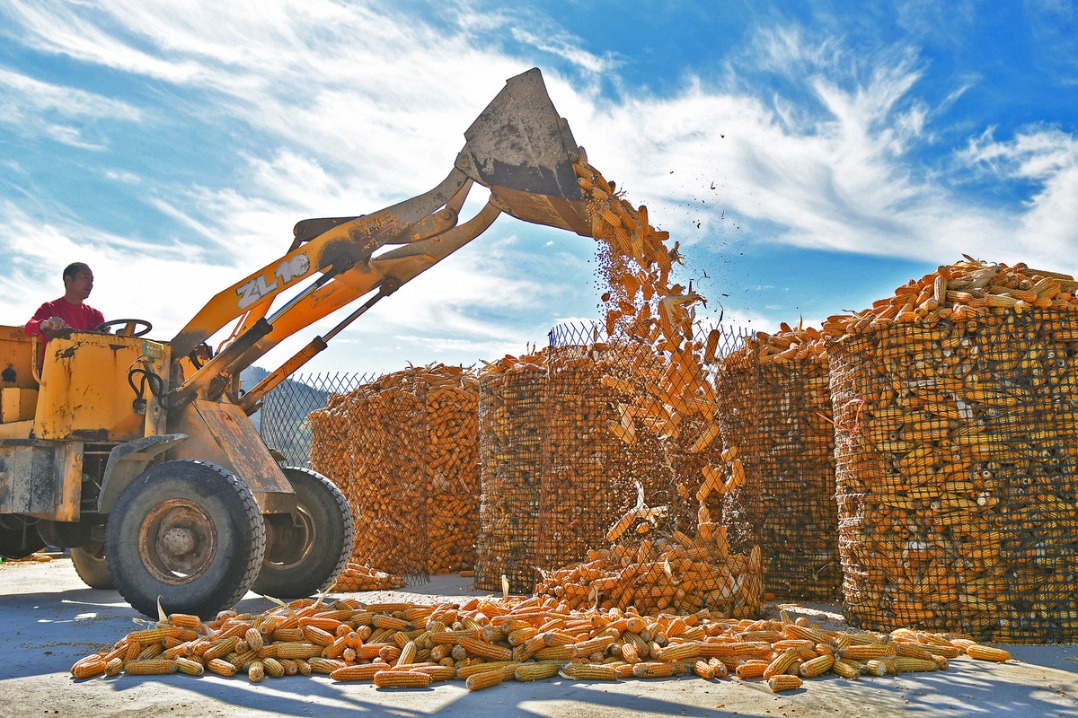Steps taken to reduce delivery food waste

With online food orders taking off in recent years, China's food delivery platforms and the restaurant industry are taking measures to reduce food waste.
As of June, the number of people who order food online in China was 535 million, an increase of 13.7 million compared with December last year, according to the 52nd Statistical Report on China's Internet Development released by the China Internet Network Information Center.
A survey conducted by the School of Environment at Tsinghua University, China Chain-Store and Franchise Association, and food delivery platform Meituan shows that each takeaway user squanders an average of 57.5 grams of food with each order. Considering China's huge food delivery market, that's a serious problem.
The waste is partly a result of discounts for minimum spending, which encourage people to order more than they can consume, Legal Daily reported.
In June, the State Administration for Market Regulation and the Ministry of Commerce released guidelines to prevent takeaway food waste, which say food delivery platforms should encourage restaurant owners to provide smaller portions. It also orders platforms to optimize discounts for minimum spending mechanisms by excluding staple food.
In response, food delivery systems have started using technological means to reduce food waste. When people pay their bills online, there is a notice on the interface to remind people to cherish food and avoid food waste. Meituan grants restaurant owners an e-badge if they meet their small portions target.
The restaurant industry is also doing its part. A woman surnamed Li who works at a restaurant that sells braised noodles in Beijing's Dongcheng district said consumers can choose their portion size based on their demand.
"Some of my customers are migrant workers and they have a large appetite. Very few people need a small serving of food. But the food delivery system allows consumers to leave a message when they order food online. We will satisfy their demand on portion size," Li added.
A restaurant owner surnamed Mao started her business four years ago in Chaoyang district.
"Some consumers told me they can't finish a standard portion of rice, that's why we offer a small portion of rice to reduce food waste. It will save consumers two to three yuan (28 cents to 42 cents)," said Mao.
The decision has been widely welcomed, with the restaurant selling about 500 smaller portions per month.
To tackle leftover food, restaurant owners have been offering residual food "surprise boxes" — leftover ingredients and dishes packaged into boxes that consumers purchase without knowing the specific contents. It not only decreases food waste but also offers people the opportunity to discover and try different foods.
In response to the issue of food waste, China launched the "Clear Your Plate" campaign to decrease food waste in 2020. A year later, the National People's Congress, China's top legislature, passed an anti-food waste law.
- Chinese able to receive meteorological alerts up to 8 minutes in advance
- Typhoon Trami slaps Hainan on way out
- Across China: Chinese researchers use CT scanning to trace origins of rice domestication
- China activates emergency response to flooding in Hainan
- Taiwan issues warning as Typhoon Kong-rey nears
- China Focus: Long March legacy injects vitality into revitalization in China's old revolutionary base





































